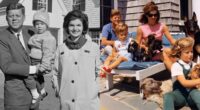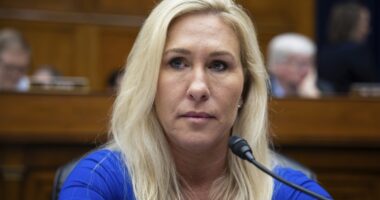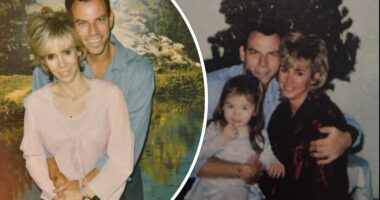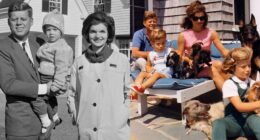Tatiana Schlossberg, the granddaughter of President John F. Kennedy, has shared a heartbreaking and deeply personal diagnosis: she is dying of terminal cancer. In a powerfully raw essay published in The New Yorker, the 35-year-old mother and environmental journalist revealed she has an aggressive form of acute myeloid leukemia (AML) and that her doctors have told her she may have only a year left to live. Her story is not just one of illness, but of a life full of vitality interrupted, of a relentless fight for more time with her young family, and of the painful new tragedy it brings to a family already acquainted with profound loss.
The discovery of her illness came on a day that should have been filled with nothing but joy. On May 25, 2024, just hours after giving birth to her daughter, a doctor noticed an alarming imbalance in her white blood cell count. A normal count ranges from 4,000 to 11,000 cells per microliter; Tatiana’s was 131,000. What began as a suspicion of something related to pregnancy was soon confirmed as a shocking diagnosis: acute myeloid leukemia, specifically a rare and high-risk mutation known as Inversion 3.
She was a new mother, an athlete who had swum a mile the day before going into labor, and suddenly she was a cancer patient, being wheeled away from her newborn to a different hospital floor.
The Unpredictable Battle with a Rare Cancer
Acute myeloid leukemia is a fast-moving cancer that starts in the bone marrow and blood. The particular mutation Tatiana Schlossberg has, Inversion 3, is especially serious. It is a chromosomal flaw that causes cancer cells to grow uncontrollably and makes the disease notoriously difficult to treat, often seen in older patients rather than healthy young adults. As she put it, she “could not be cured by a standard course” of treatment.
Thus began a grueling 18-month medical journey. She endured months of chemotherapy, a bone-marrow transplant using stem cells donated by her sister, and a clinical trial of CAR-T-cell therapy, a type of immunotherapy. While the transplant initially put her in remission, the cancer proved tenacious. Her transplant doctor told her this type of leukemia “liked to come back.” After relapsing and joining the clinical trial, she received the devastating prognosis that she might live for another year, maybe.
Tatiana Schlossberg, the daughter of Caroline Kennedy, had just given birth when she was diagnosed with a rare form of leukemia. She writes about her fear of adding another tragedy to her family’s life. https://t.co/GR1vSZYmsW pic.twitter.com/NdTNuS0Acl
— The New Yorker (@NewYorker) November 23, 2025
Throughout her treatment, Tatiana Schlossberg experienced the profound indignities of her disease. She lost her hair, suffered from painful mouth sores that made eating impossible, and at one point had to re-learn how to walk. Yet, she also found moments of light and humor, joking that her bald head and a facial scrape made her look like a “busted-up Voldemort.”
From her hospital bed, she also watched with unease as her cousin, Robert F. Kennedy Jr., was confirmed as Secretary of Health and Human Services. She openly criticized his policies, which slashed funding for medical research and threatened the very systems and clinical trials upon which her survival depended. She described the healthcare system she relied on as suddenly feeling “strained, shaky.”
You Might Like: Rodney Rogers: NBA Career and Financial Legacy
Family, Legacy, and Making Memories
At the heart of Tatiana Schlossberg’s story is her deep devotion to her family. Her greatest anguish comes from the impact of her diagnosis on her two young children. Her first thought upon hearing her prognosis was the fear that her son and daughter would not remember her. She writes with profound love and gratitude for her husband, George Moran, a doctor who slept on hospital floors, managed complex medical conversations, and cared for her unwaveringly. She also leans on her famous family—her mother, Caroline Kennedy, her father, Edwin Schlossberg, and her siblings, Rose and Jack—who have been raising her children and keeping vigil in her hospital room every day.
In doing so, she adds another layer to the Kennedy family’s long history of public and private tragedy, acknowledging the new sorrow she is bringing to her mother, whom she has spent a lifetime trying to protect from pain. Now, with the time she has left, her focus is singular. She is trying to be fully present with her children, to soak in the ordinary moments, and to fill her mind with memories, even as they flicker through her mind alongside flashes from her own childhood. She is living with a painful paradox, trying to build a lifetime of memories in a rapidly shrinking future, all while holding onto the hope that she will be remembered.









